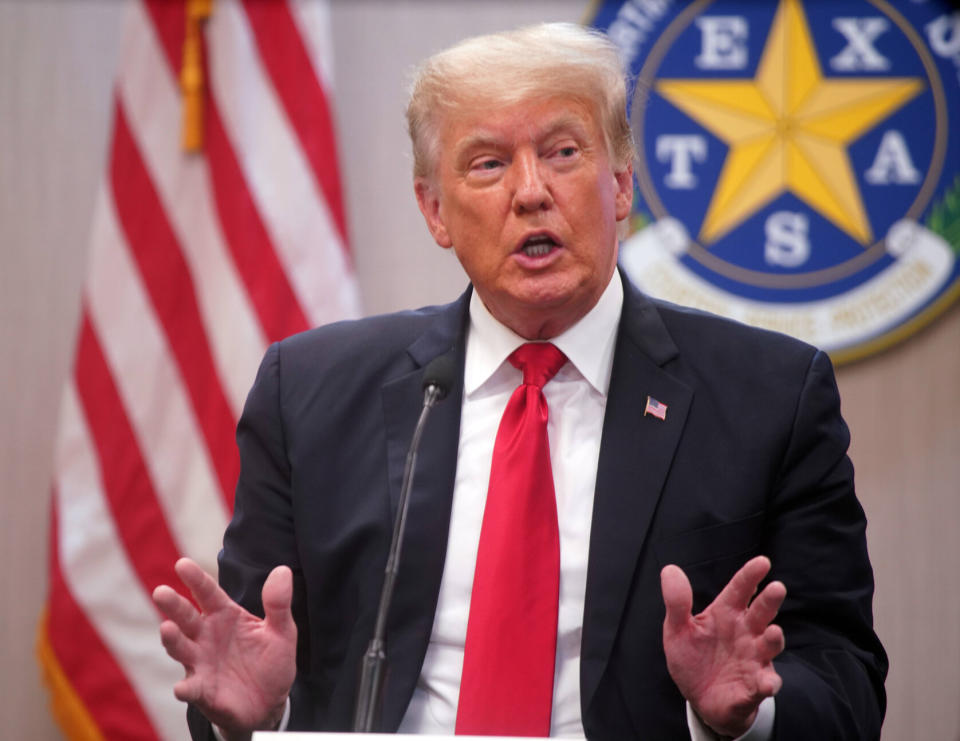Apple and Google should ban TikTok, FCC commissioner says

If you purchase an independently reviewed product or service through a link on our website, BGR may receive an affiliate commission.
In a letter this month addressed to the CEOs of Apple and Google, FCC commissioner Brendan Carr in so many words said President Trump was right to try and crack down in 2020 on the mega-popular video-sharing app TikTok. The gist of Carr’s letter: TikTok shouldn’t be widely available to download in the US, given the shady data-sharing practices of the app’s China-based parent company ByteDance.
Notwithstanding TikTok’s protestations that it’s transferred US user data to Oracle-run domestic servers, Carr — who’s also gone after other Chinese companies like DJI, which he likened to a “Huawei on Wings” — penned his TikTok letter in light of a damning BuzzFeed News report. Among other things, that report relied on leaked audio to reveal that “ByteDance officials in Beijing have repeatedly accessed the sensitive data that TikTok has collected from Americans.”
Today's Top Deals
Hurry! Pick up AirPods Pro at the lowest price of 2022 before they sell out
What?! Apple's most affordable iPad has an extra discount for the first time in 2022
One unnamed TikTok official in that report even went so far as to declare: “Everything is seen in China.”
FCC commissioner calls for TikTok ban
So where do Apple and Google come into play amid all this? Well, Carr writes that TikTok has racked up more than 19 million downloads in the US in just the first quarter. “I am writing the two of you,” his letter to the CEOs of both companies reads, “because Apple and Google hold themselves out as operating app stores that are safe and trusted places to discover and download apps.”
TikTok’s availability in both companies’ app stores, the letter continues, represents a clear and “unacceptable national security risk.”
The app’s “surreptitious data practices” are particularly nettlesome, as he sees it. A Carr tweet thread called out TikTok as being much more than a storehouse of silly dance videos. He said the app “collects search and browsing histories, keystroke patterns, biometric identifiers, draft messages and metadata.”
Plus, the app hoovers up “the text, images, and videos” from a device’s clipboard. In other words, Big Brother is watching you … dancing with Horace on TikTok.
TikTok is not just another video app.
That’s the sheep’s clothing.It harvests swaths of sensitive data that new reports show are being accessed in Beijing.
I’ve called on @Apple & @Google to remove TikTok from their app stores for its pattern of surreptitious data practices. pic.twitter.com/Le01fBpNjn
— Brendan Carr (@BrendanCarrFCC) June 28, 2022
Here’s Carr’s specific request. “I am requesting that you apply the plain text of your app store policies to TikTok and remove it from your app stores for failure to abide by those terms.”
“Surreptitious data practices”
Given everything we’ve learned in the years since a Trump executive order in August 2020 that threatened an outright TikTok ban? It’s not hard to argue that, at the very least, the former president was on to something.

Consider some of the facts we learned once Trump left office. TikTok, for one thing, waited until 2021 to quietly tweak its privacy policy. Starting last year, the company specified that it may “collect biometric identifiers and biometric identification” from user content.
Here’s how the company’s privacy policy now reads. “We may collect biometric identifiers and biometric information as defined under US laws, such as faceprints and voiceprints, from your User Content. Where required by law, we will seek any required permissions from you prior to any such collection.”
That last sentence is very carefully worded. Because as things stand now, TikTok could actually collect biometric data from most users in the US. And it would still be within the bounds of the framing above. That’s because most states don’t have laws on the books forbidding companies from collecting this data. Just imagine if the Trump administration had caught wind of that change.
Also last year, meanwhile, TikTok insiders told CNBC that the Trump administration was basically right all along. They said, among other things, that TikTok’s parent “has access to American user data.” And that ByteDance is actively involved in US-related decision-making and product development.”
App Store precedent
Carr wants the respective app stores to either give TikTok the boot, or explain why the app doesn’t hurt users. In closing his letter, he also adds there’s precedence for such a ban. Back in 2018, Apple pulled an app called Adware Doctor from the Mac App Store. Why?
Turns out, Carr writes, it “collected user data and sent it to a server located in China without user consent.”
More Top Deals

